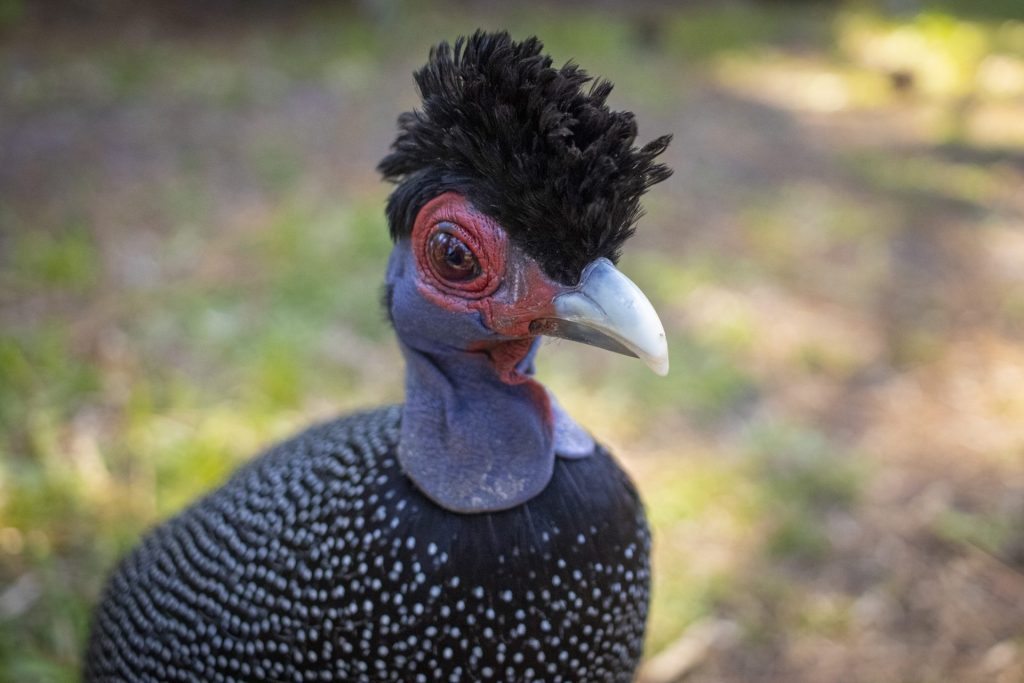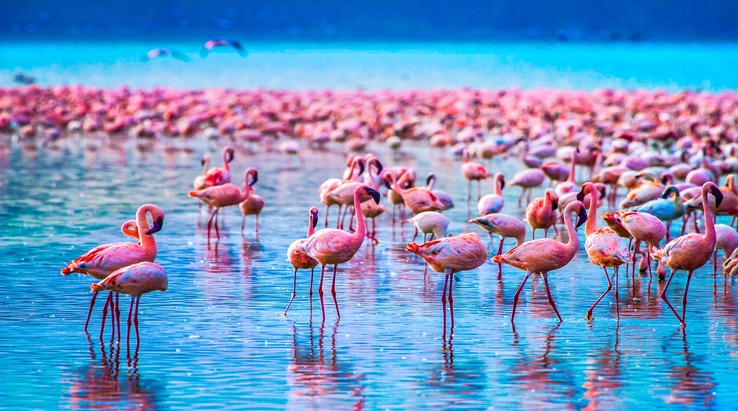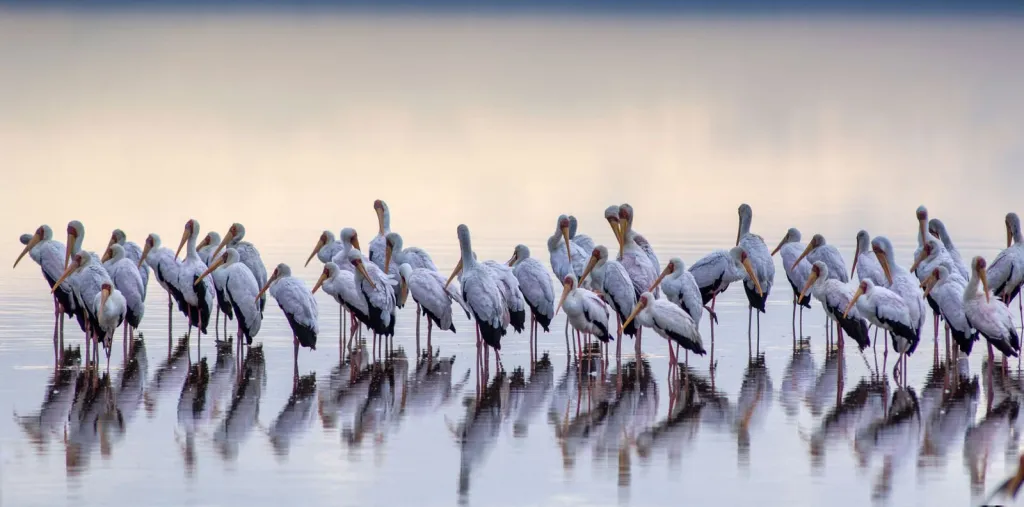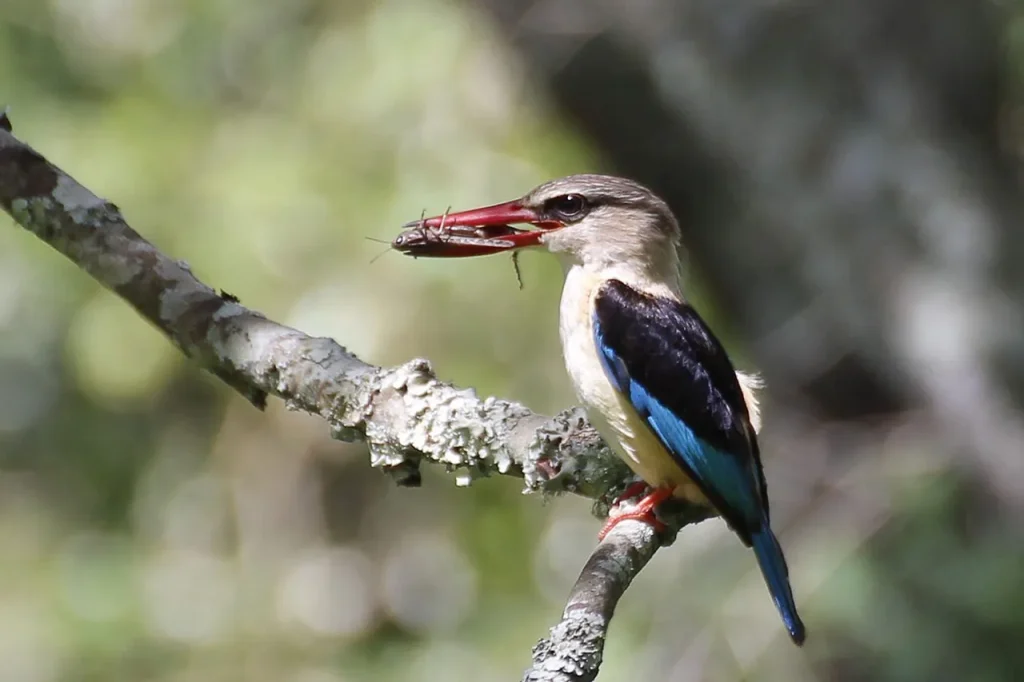Awaken to the Sounds of Nature at Dawn in Lake Manyara




Lake Manyara Birds Sounds of Nature
Waking up to the sounds of nature at dawn in Lake Manyara is an experience that stays with you long after you leave. The park, nestled in Tanzania’s northern safari circuit, offers an incredible auditory journey, especially at sunrise when the world is coming alive. The Lake Manyara birds sounds of nature fill the air, creating a symphony that reflects the rich biodiversity and vibrant ecosystems that define this part of East Africa. For birdwatchers, nature enthusiasts, and anyone looking for a truly immersive experience, waking up to the chorus of sounds at Lake Manyara is an unforgettable way to start the day.
The Magic of Early Morning Sounds in Lake Manyara
- A Symphony of Birds at Dawn
- At the crack of dawn, before the heat of the day takes over, Lake Manyara is alive with the sounds of birdsong. The park is home to over 400 bird species, and many of these begin their day early, filling the air with a variety of calls, chirps, and songs.
- The Lake Manyara birds sounds of nature include the melodic calls of hornbills, the distinctive “ha-ha” of the white-browed coucal, and the high-pitched whistles of the African fish eagle. These birds, along with many others, create a natural orchestra that adds to the park’s serene atmosphere. The sound of a distant flamingo’s call, echoing over the lake, further enriches the early morning experience.
- The Unique Echo of the African Fish Eagle
- One of the most iconic sounds at dawn in Lake Manyara is the haunting call of the African fish eagle. Often described as the “voice of Africa,” this bird’s distinctive cry echoes across the lake and the surrounding forested areas, greeting the morning with its resonant, wavering tone.
- Visitors at Lake Manyara often awake to this powerful sound, signaling the start of a new day. Whether you’re in a safari lodge overlooking the lake or out on an early morning game drive, the African fish eagle’s call is a signature part of the Lake Manyara birds sounds of nature.
- The Morning Chorus of Smaller Birds
- While the larger birds make their presence known with louder calls, the smaller species are just as vocal in the early hours. The chattering of weavers, the cheerful warbles of sunbirds, and the rhythmic drumming of woodpeckers can all be heard as part of the park’s morning soundtrack. These smaller birds often take to the air as dawn breaks, offering travelers an auditory preview of the day’s wildlife activities.
- Many bird species also begin their feeding activities at dawn, adding their sounds to the peaceful ambiance, and the forest comes alive with the buzzing of insects, further complementing the chorus of birdlife.
- The Sounds of Nature Beyond Birds
- While birds dominate the dawn symphony, the sounds of other wildlife can be heard in the quieter moments of early morning. The rustling of leaves as primates like baboons and vervet monkeys wake up and start foraging, or the deep grunts of hippos emerging from the water, contribute to the rich tapestry of sounds. The Lake Manyara birds sounds of nature blend seamlessly with these natural noises, creating a holistic experience that transports you into the heart of the African wilderness.
- The Calm Before the Day’s Activity
- The tranquility of the early morning at Lake Manyara provides a contrast to the park’s busy daytime. At dawn, the air is cool and still, and the birds sounds of nature are at their clearest. This peaceful period allows visitors to truly absorb the sounds, uninterrupted by the movement of vehicles or crowds, making it the perfect time for reflection and connection with nature.
- Whether you’re staying in a lodge within the park or camping under the stars, the early morning sounds are a natural alarm clock, gently waking you up to the wild rhythm of the park. The quiet yet vibrant environment offers an ideal opportunity for those seeking serenity and those wishing to experience the raw sounds of Tanzania’s wildlife firsthand.
Experiencing the Birds Sounds of Nature in Lake Manyara
- Bird Watching at Dawn
- For avid birdwatchers, waking up early to catch the first light of day at Lake Manyara is a must. The lake’s shoreline, wetlands, and surrounding woodlands are teeming with avian life, offering excellent opportunities to observe a variety of species. From the iconic flamingos that grace the lake’s shores to the myriad of smaller songbirds, Lake Manyara provides an ideal setting for birdwatching at dawn.
- The Lake Manyara birds sounds of nature are especially prominent during the early hours, when the birds are most active. Armed with binoculars and a camera, visitors can catch glimpses of colorful birds while enjoying their natural songs filling the air.
- Guided Safari Walks and Birdwatching Tours
- To fully immerse yourself in the birdwatching experience at dawn, a guided safari walk or birdwatching tour is an excellent option. Many tours in Lake Manyara are led by expert guides who are familiar with the birds and their calls, helping visitors identify species and understand their behavior.
- Walking through the park at dawn with a knowledgeable guide opens up the opportunity to not only hear but also see the birds in action. It’s a chance to witness the behavior of different species, whether it’s a flamingo feeding at the water’s edge, a pair of hornbills calling to one another, or a tawny eagle soaring high above.
- The Role of Lake Manyara in Bird Conservation
- Lake Manyara’s unique ecosystem plays an important role in bird conservation. The park’s varied habitats, including its alkaline lake, wetlands, forests, and woodlands, support a wide array of bird species. Many migratory birds stop at the lake, making it a crucial stopover point along their routes.
- As visitors awaken to the Lake Manyara birds sounds of nature, it’s important to remember the park’s role in protecting these habitats and species. Sustainable tourism in the area ensures that the natural beauty and the biodiversity of the park, including the birds that make the dawn so magical, can continue to thrive for future generations.
Tips for Experiencing the Lake Manyara Birds Sounds of Nature
- Arrive Early
- To fully experience the sounds of nature at Lake Manyara, arriving early is essential. The best time to hear the birds’ symphony is just before and during sunrise when the wildlife is most active. Staying in a lodge or camp within the park gives you an ideal location to wake up and immediately immerse yourself in the morning chorus.
- Bring a Good Pair of Binoculars
- A pair of binoculars is key to fully appreciating the birdlife at Lake Manyara. Whether you’re looking for flamingos in the distance or trying to identify a distant raptor, binoculars will enhance your experience and allow you to observe the birds more closely.
- Respect Wildlife and Nature
- As you enjoy the early morning sounds of the park, be sure to respect the wildlife and environment. Maintain a safe distance from animals and avoid disturbing the natural habitat. This ensures the birds and other wildlife can continue to thrive in their peaceful surroundings.
- Capture the Moment
- The beauty of Lake Manyara’s birds and the peaceful sounds of nature are fleeting, so it’s important to take in the moment and capture the experience. Whether through photographs or simply by sitting in quiet reflection, immerse yourself in the serenity of the park’s early morning ambiance.
Conclusion: The Awakening Sounds of Lake Manyara
Waking up to the Lake Manyara birds sounds of nature is a magical experience that allows you to connect deeply with the natural world. The diversity of bird species and the overall soundscape at dawn offer a peaceful, rejuvenating start to the day, whether you are an avid birder or someone seeking a tranquil moment in the wild. The natural orchestra that fills the air at Lake Manyara serves as a reminder of the park’s importance as a sanctuary for both migratory and resident bird species, making it a destination that should be experienced by anyone looking to hear the true voice of Africa.

One Comment